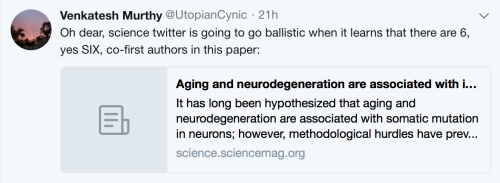Universities are always cash strapped, and over the last few decades there has been a drop in the number of PhDs funded by the UK government. In essence stipends have been increased (absolutely necessary and credit to The Wellcome Trust for pushing this), but funding has not increased commensurately. So numbers have dropped.
The response of institutions has been to push for more overseas students and to develop, from internal monies various funding schemes. However, generally this has only served to replace losses in numbers funded by government. Gone are the days when every PI expected a new PhD student every year. This has a detrimental effect on research culture, as it leads to centralisation, a reduction in diversity (in the broadest sense of the word) and fewer trained scientists. The UK relies extensively on scientists trained elsewhere for its R&D and we need to do more in relation to training. Granted science is a mobile and international profession, but without contributing proportionally to the global talent pool, our R&D may wither in the long run.
The problem is money: institutions have limited funds they can use for PhD studentships. Our European model, where PhD students are fully funded for a set number of years (usually 3-4, sometimes a few more) is in my view preferable to the US one, where students work to support themselves. This is for the simple reason that the latter model can lead to feudalism and abuse of power, which is well documented.
There is money available for institutions willing to take leadership on the Open Access Agenda.
An aggressive pursuit of an Open Access agenda, as has been done in Germany, The Netherlands and Sweden, and most recently UC, means cancelling subscriptions to the journals of the Big Four. This frees up a substantial budget, with no ill effect on research and scholarship. A portion of the funds would, of course, need to be used to hire librarians supporting document sourcing by UG and researchers and the balance to fund PhD students. I note that teaching UGs these skills is important, since most STEM workplaces (industry, where many STEM graduates and postgraduates work) do not have large libraries. One advantage of using internal funds is that one can select and so only take the very best candidates, rather than restricting enrolment to those with access to funding. While such proposals will likely be met with horror by a good many academic staff, once in place it appears that no one notices much change and continues to work productively. This is the experience of countries and institutions that have cancelled subscriptions to one or more of the Big Four.
Sadly, with my University running workshops on “How to get published in Nature”, it appears that we are 20 years behind the times and this simple and effective means to improve teaching and research (PhD students being an engine room for research) is unlikely to see the light of day here.

You must be logged in to post a comment.